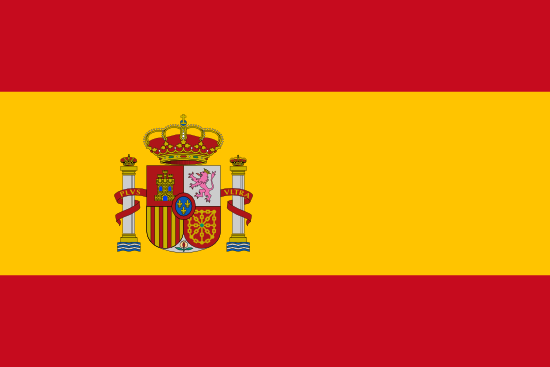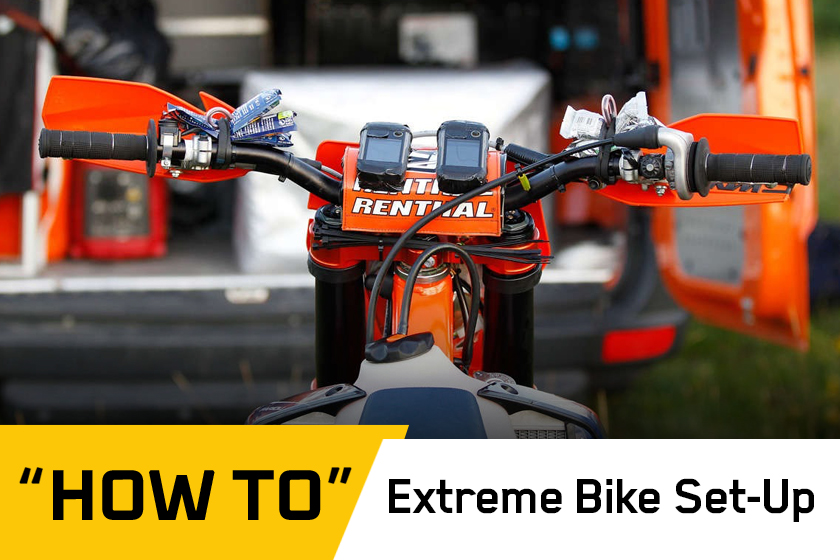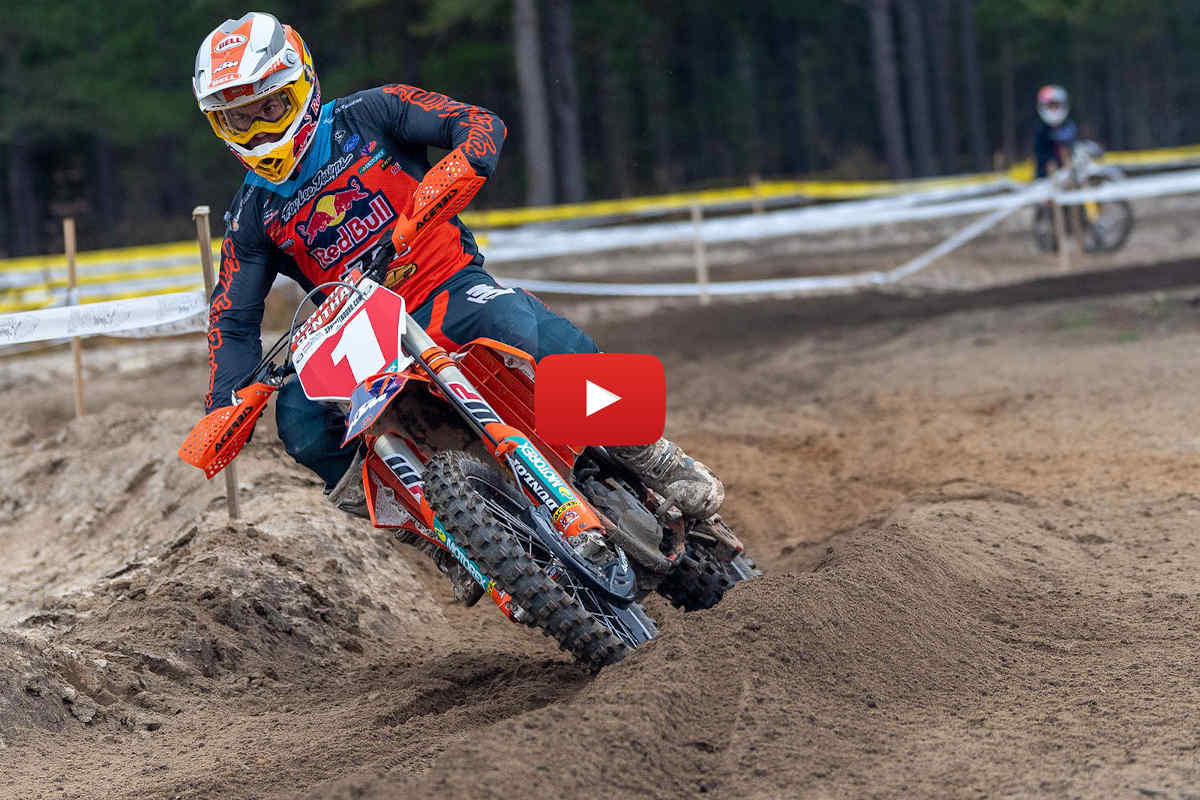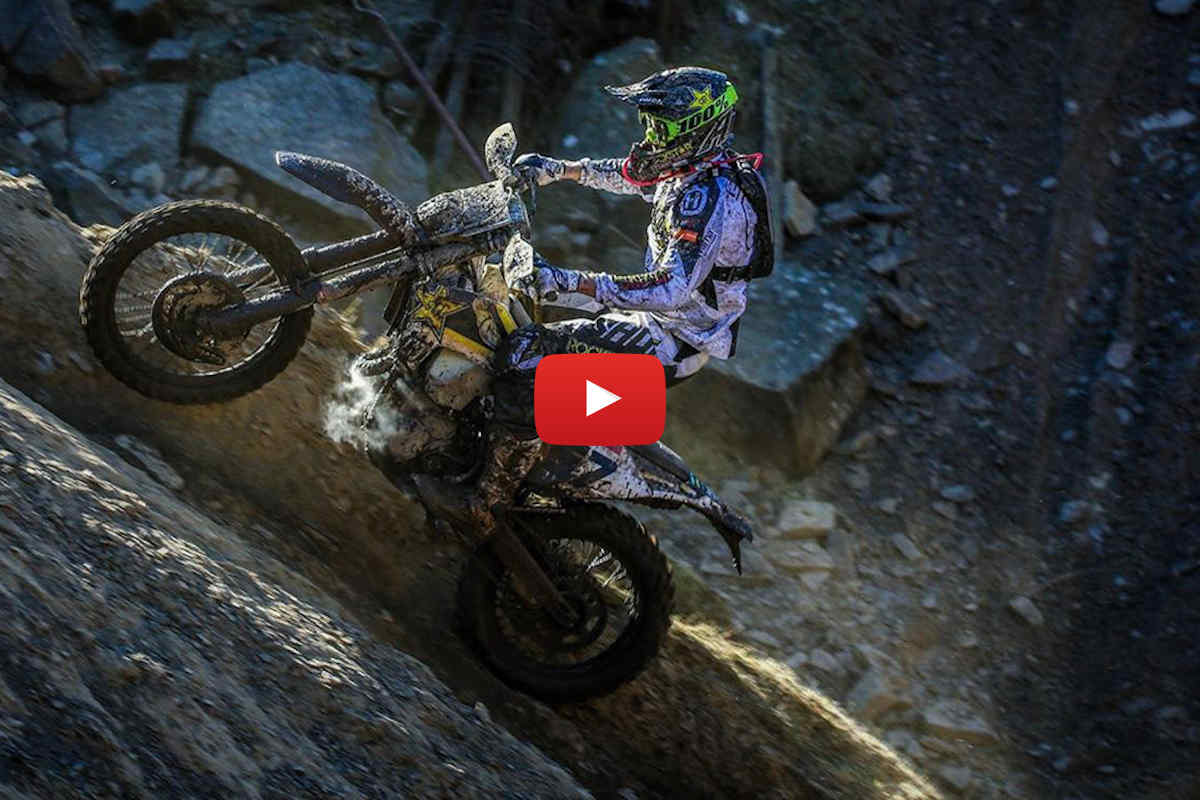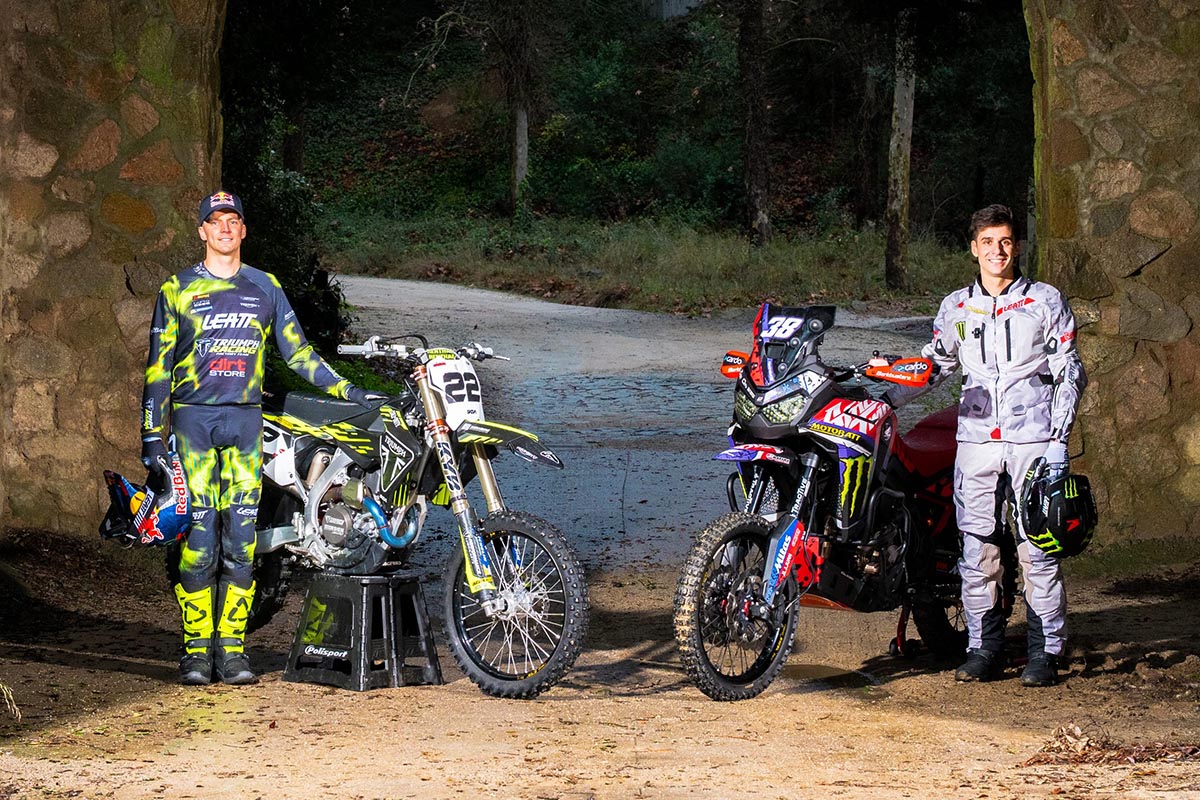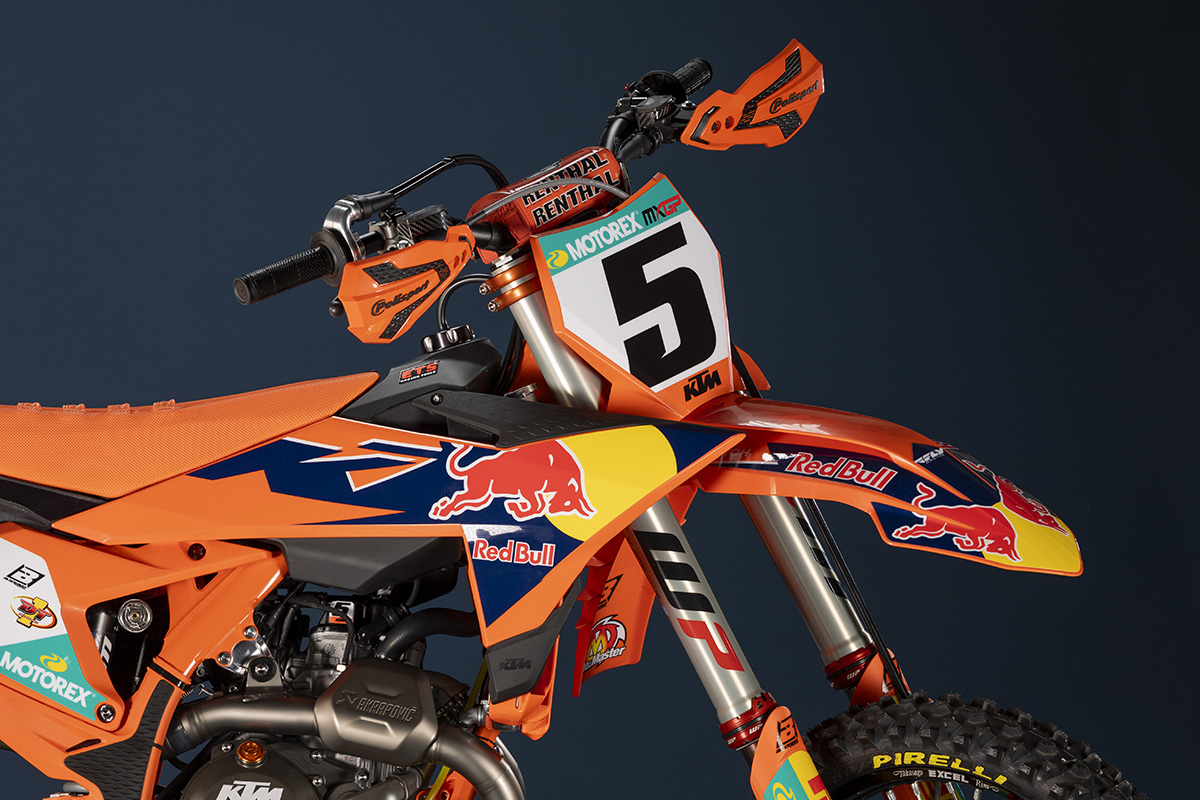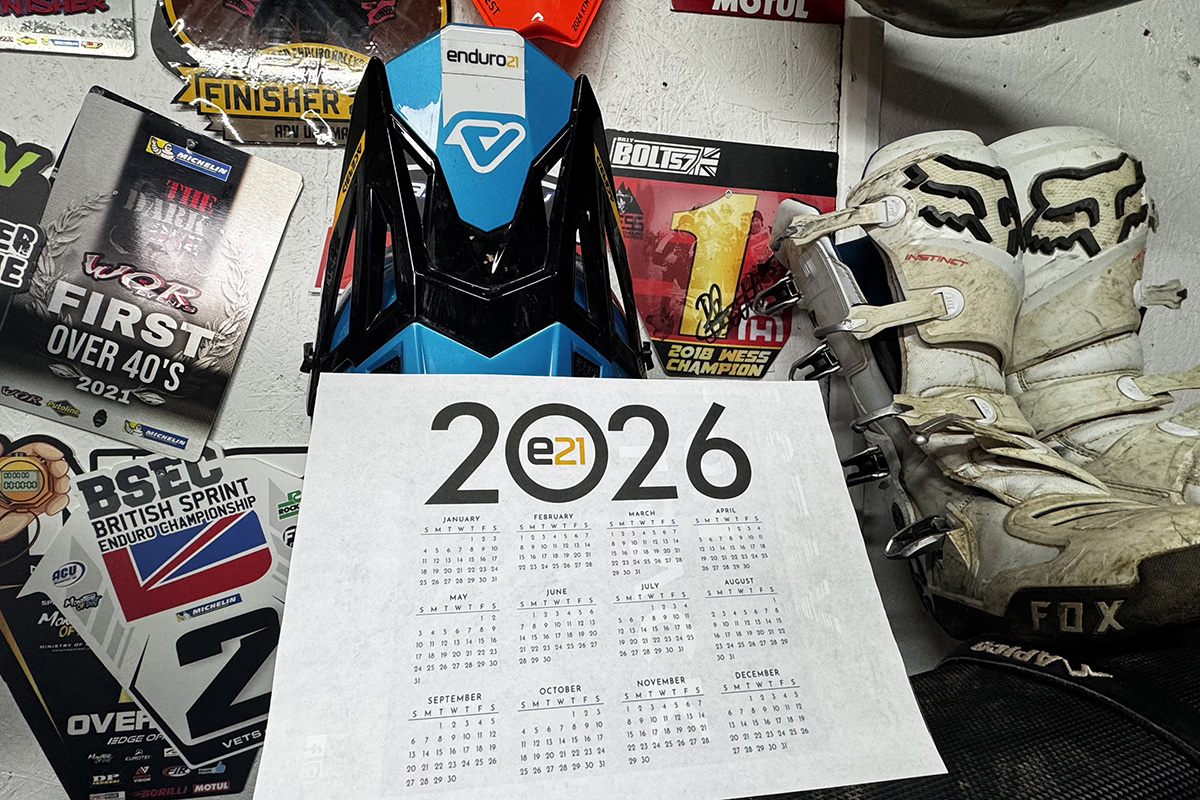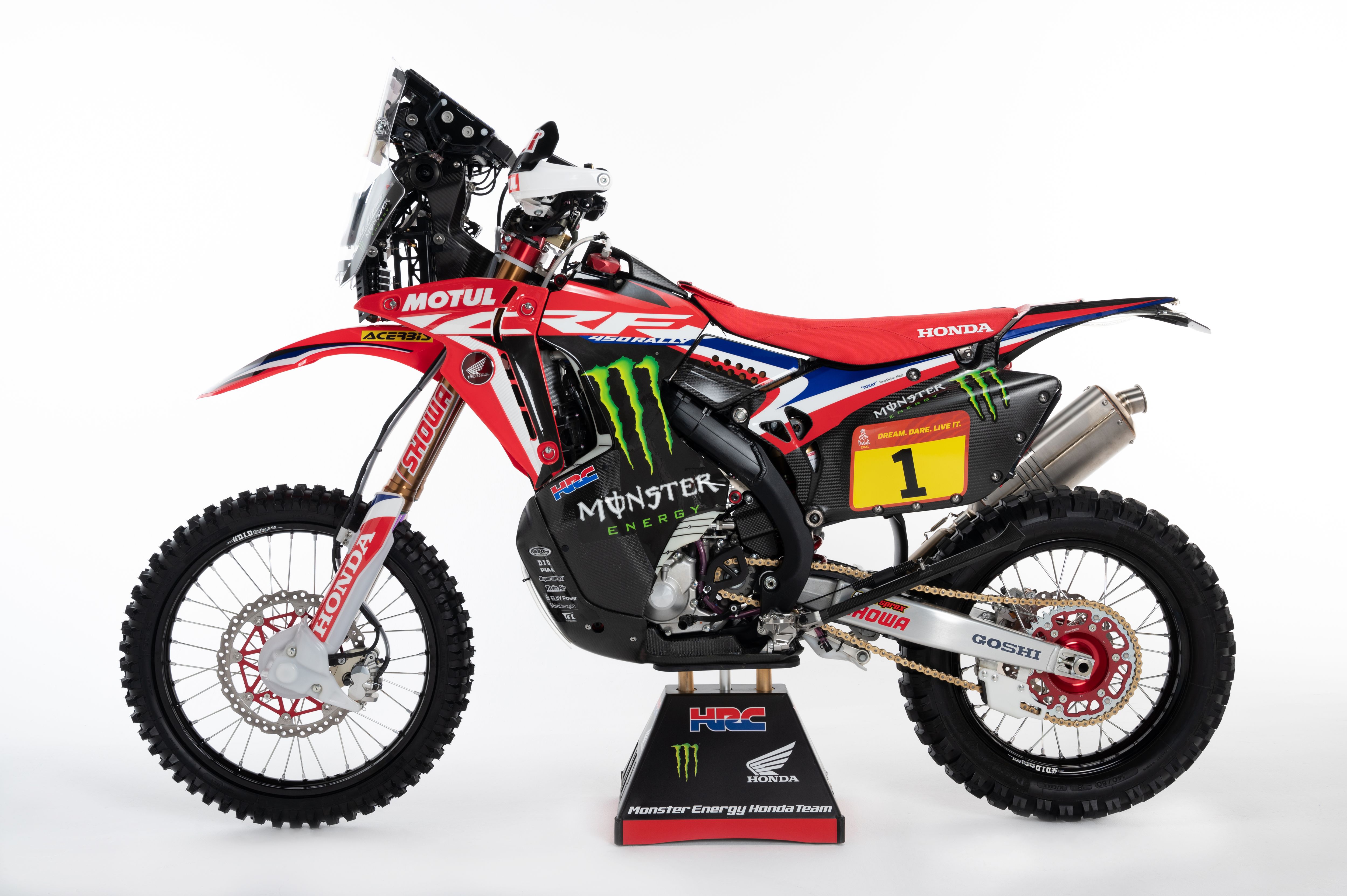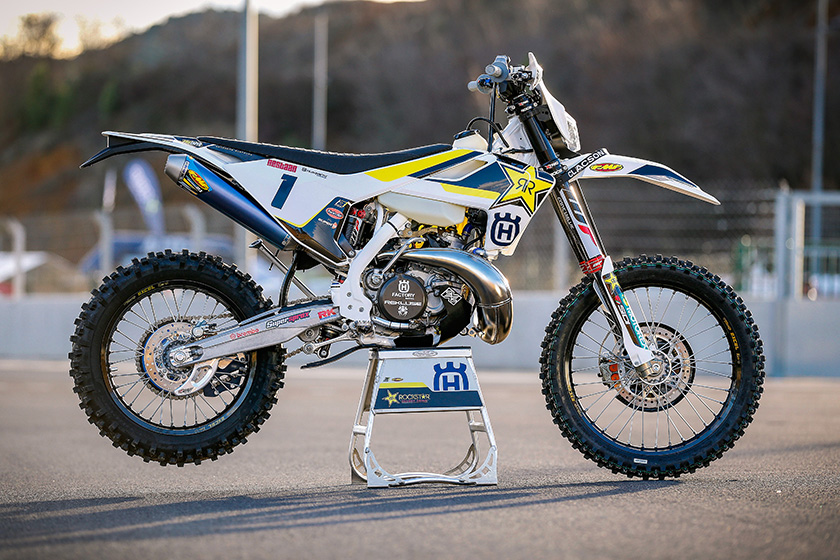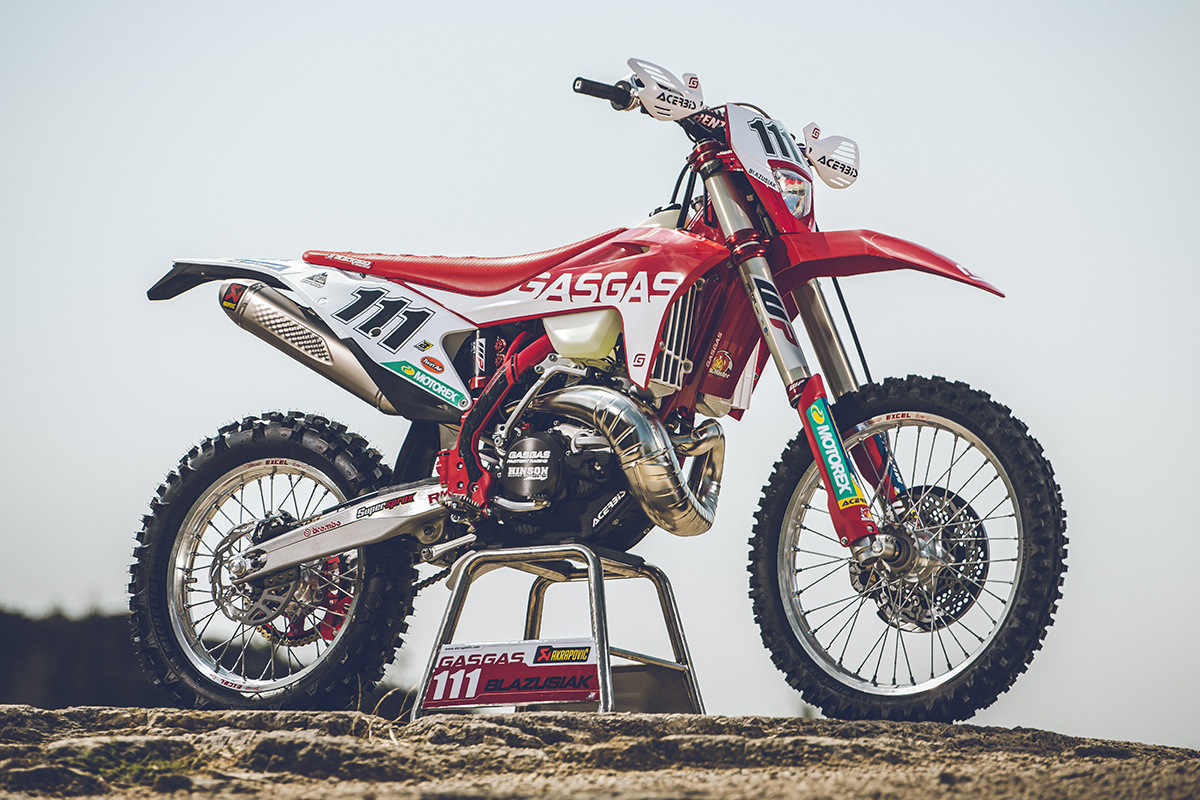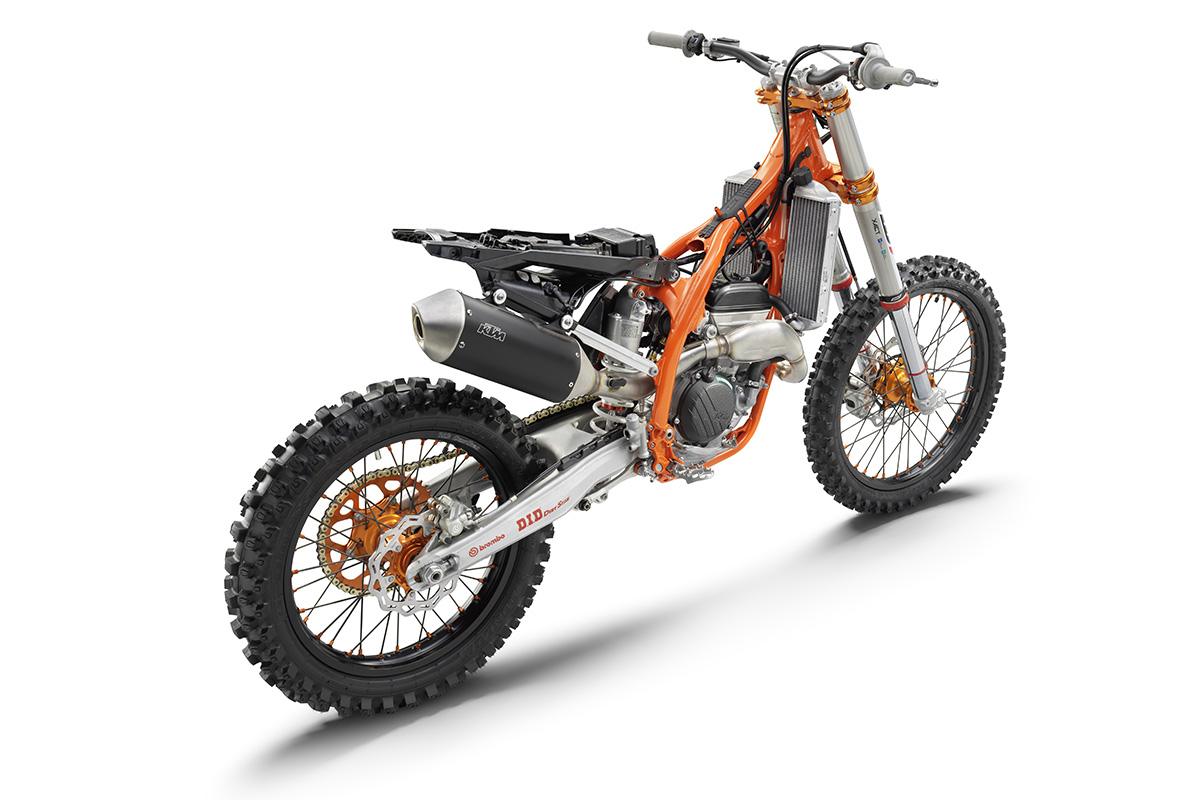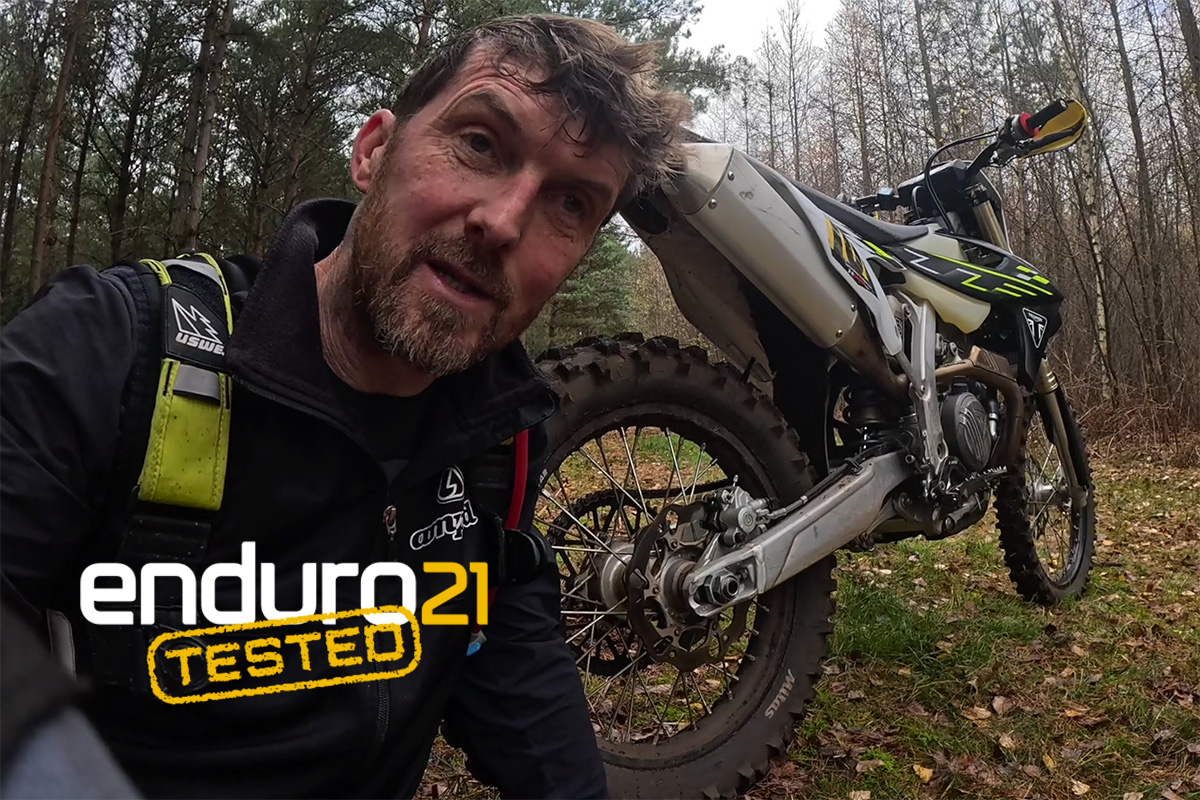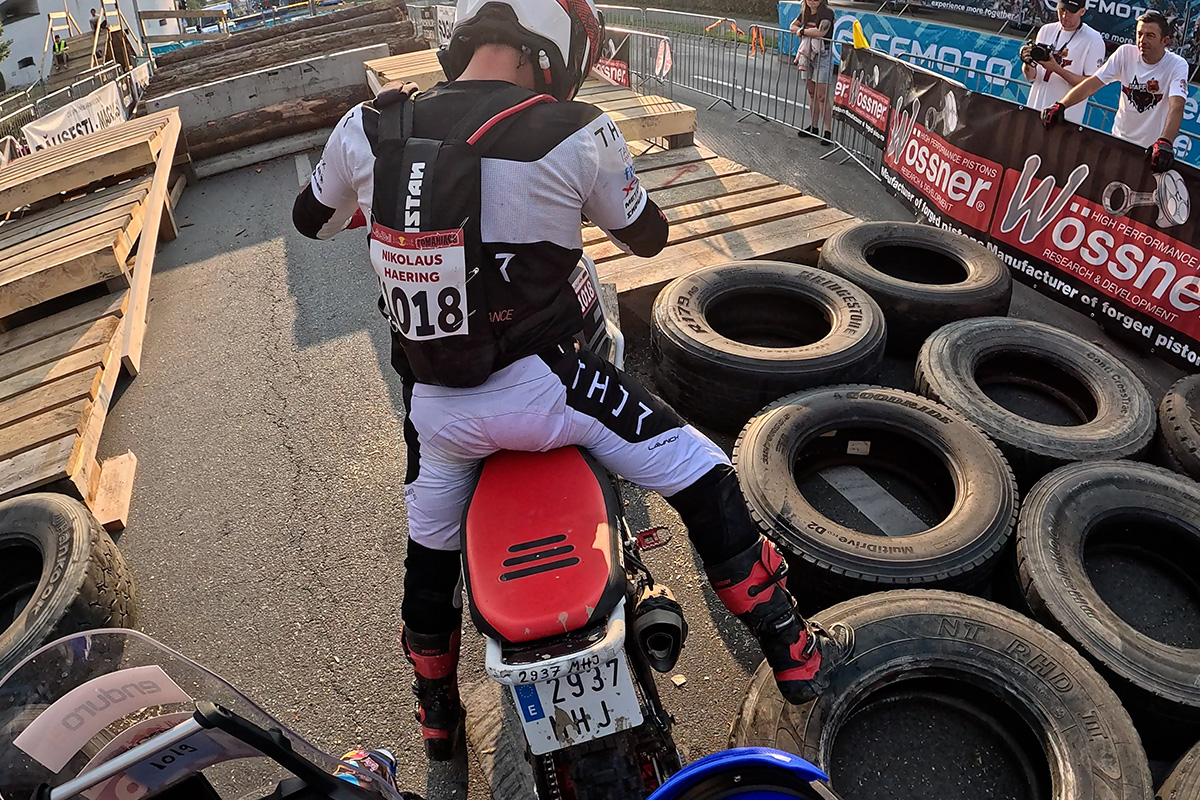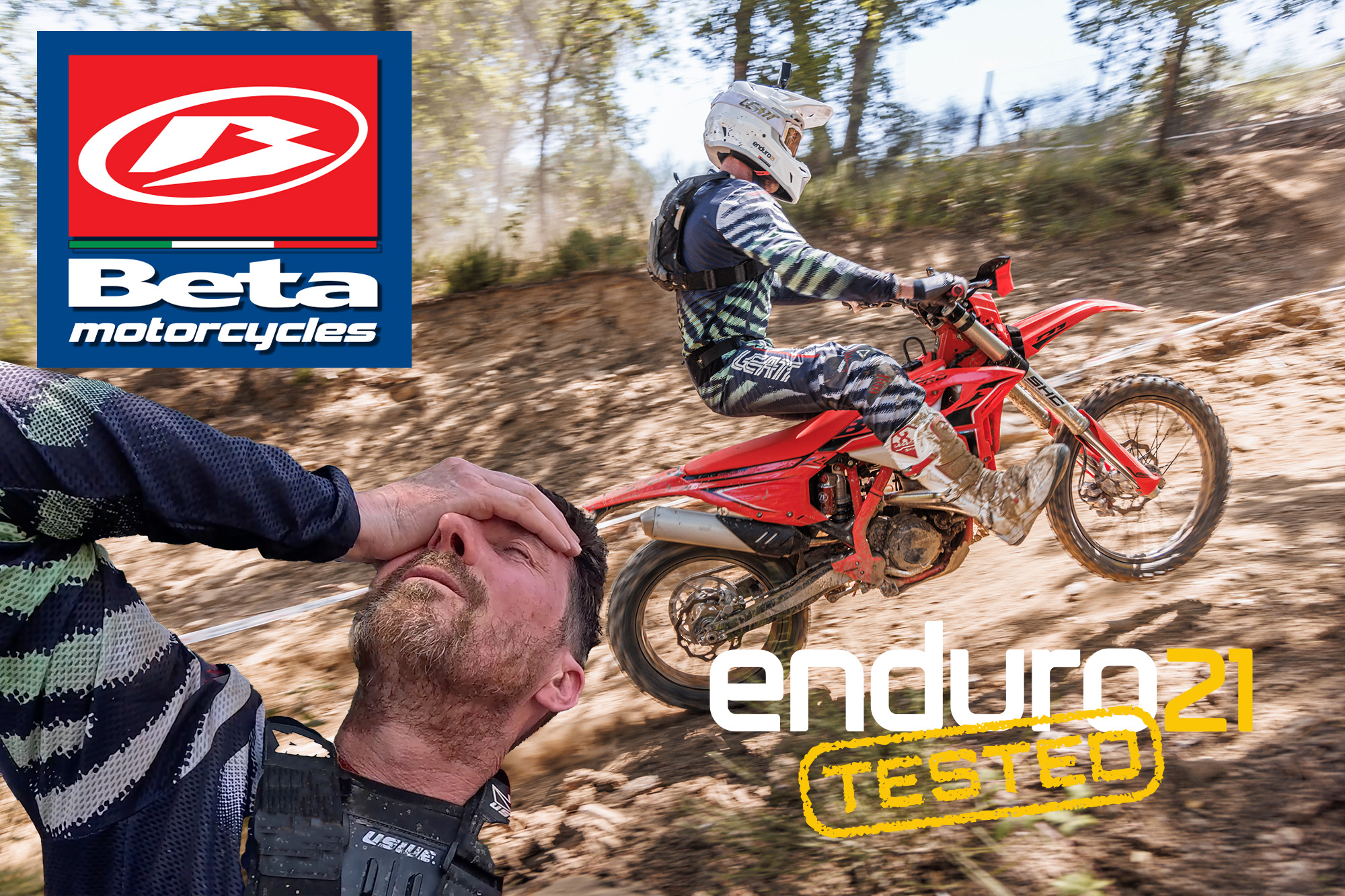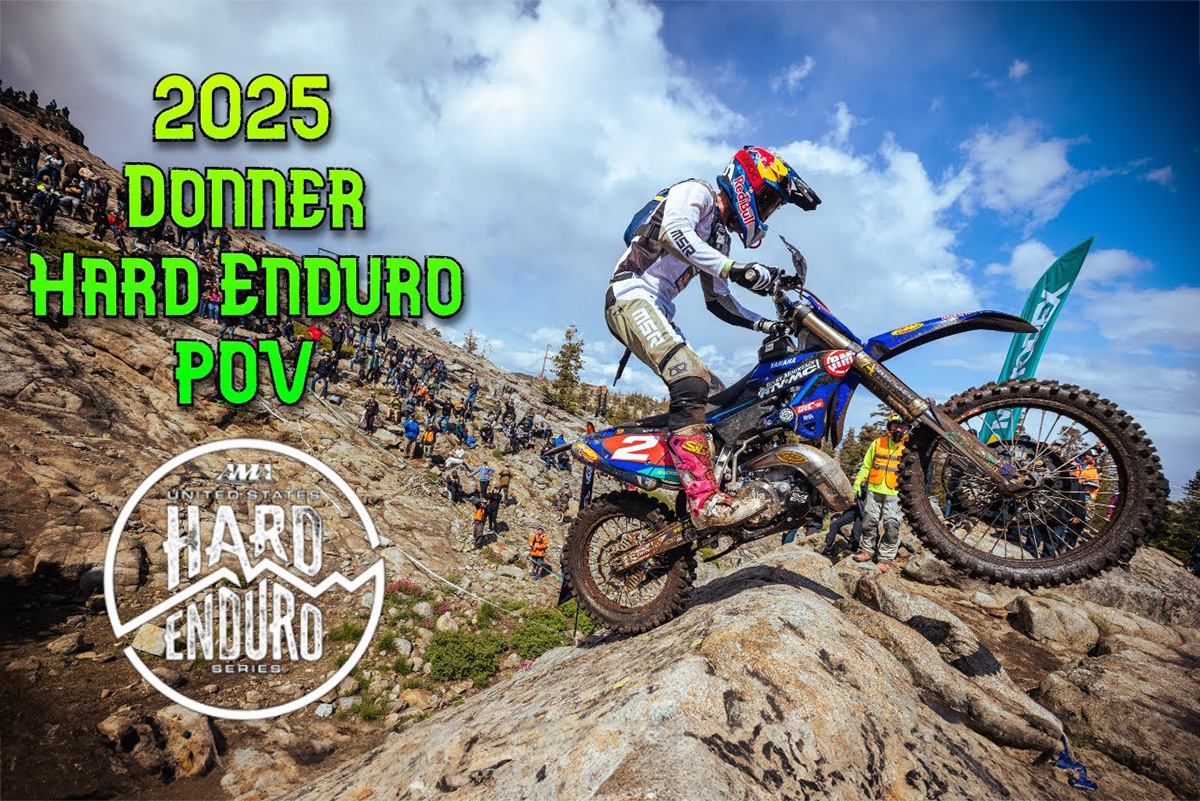How To: Set your bike up for Hard Enduro like a Pro
Hard Enduro is tough on the bike and equally tough on the body, to go the distance you need to carry supplies, here’s a few tricks of the trade that the Pro guys are doing.
Preparation is key. When you’re spending upwards of five to eight hours on your bike in a race, spending an hour beforehand to make sure your house keeping is in order is key. A tidy cockpit will allow you to have everything exactly — and securely — where you need it, when you need it. Alfredo Gomez has his meticulously prepared.
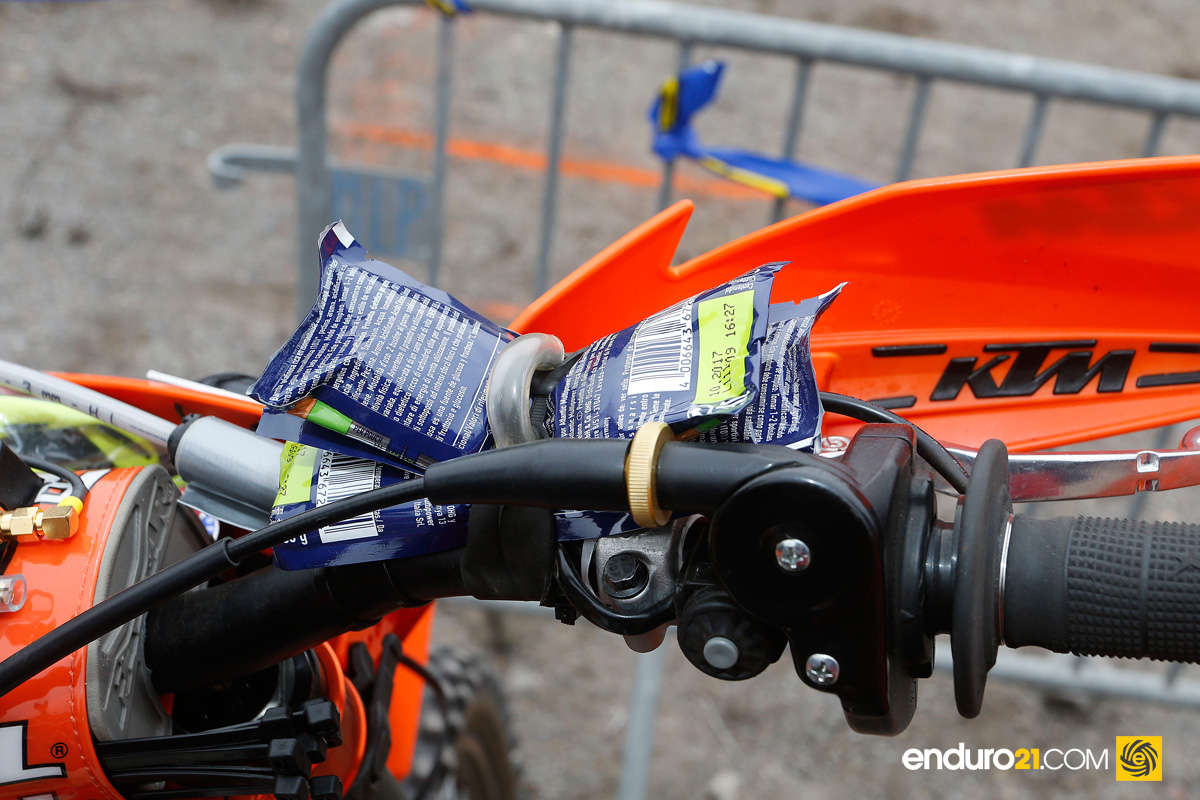
At the throttle hand are three energy gels held in place with some rubber strapping. Grab on the go means he doesn’t have to stop riding to get a boost of energy into him. Eagle eyes will spot a small roll of duck tape mounted on his front brake hose — important because duck tape fixes everything!
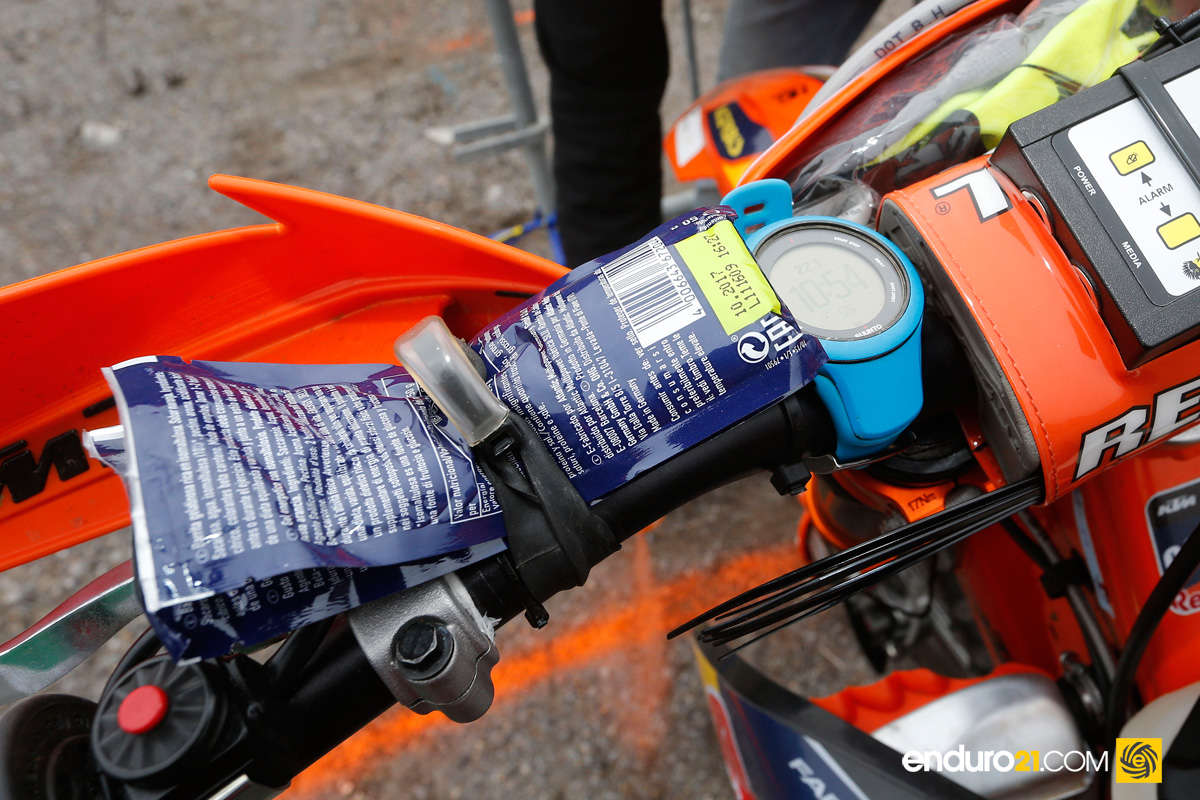
On the left hand side he’s using more rubber strapping to hold in place up to three energy gel sachets. A watch mounted to the bars means he can check the time. But this watch is also synced to his heart rate monitor meaning he can keep an eye on his ticker too, especially after a heavy climb, allowing him to adjust his pace accordingly. Note too the stash of easy accessible cable ties tucked behind his bar pad.
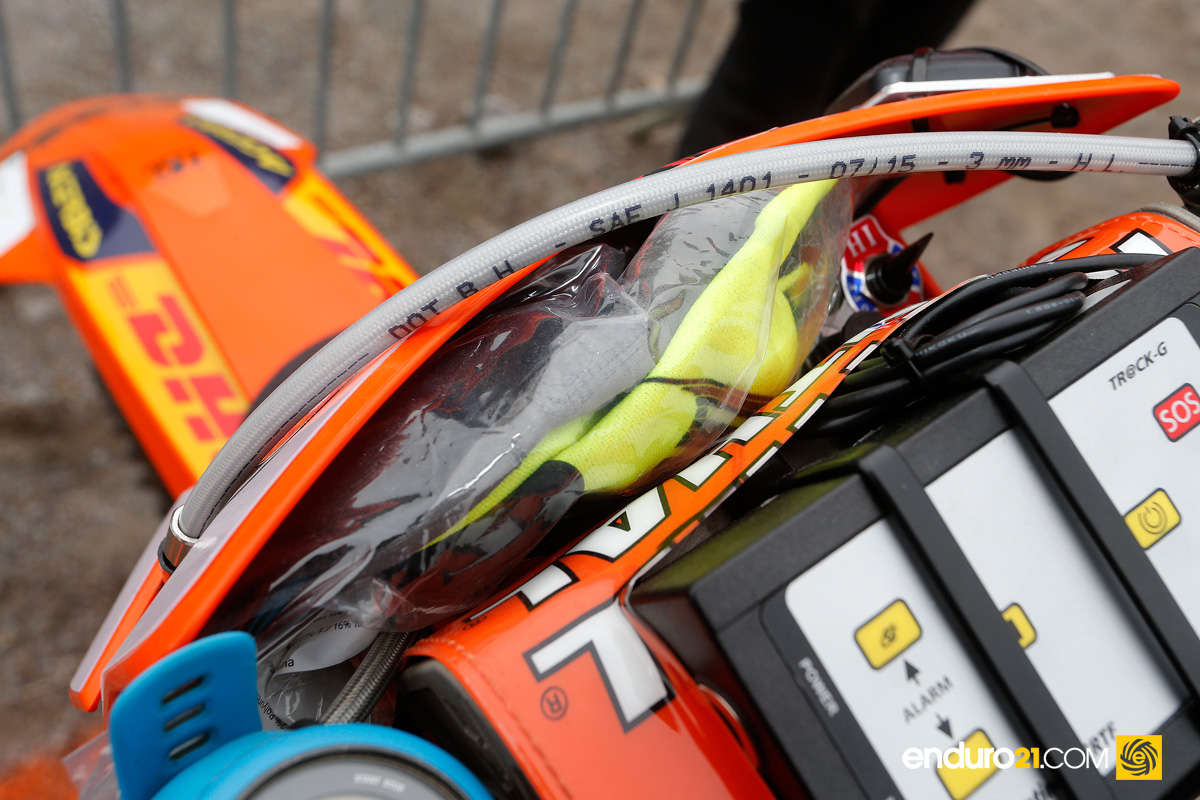
Tucked behind the headlight is a spare set of gloves. Placed in a zip-lock plastic bag keeps them clean and dry for when you need them.
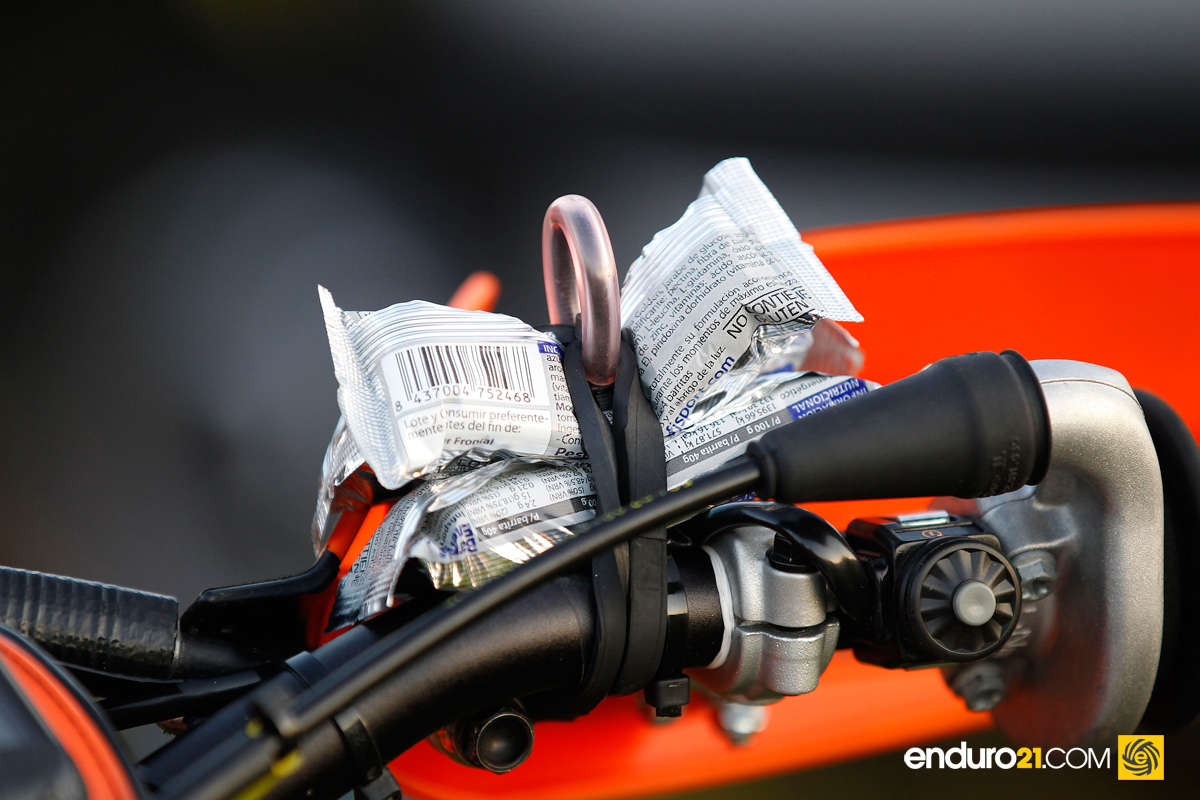
Depending on the day ahead, some riders will swap the energy gel sachets for energy bars. They rip the packet open with their teeth so they can eat on the go. The rubber tubing is sourced from an old bicycle tube.
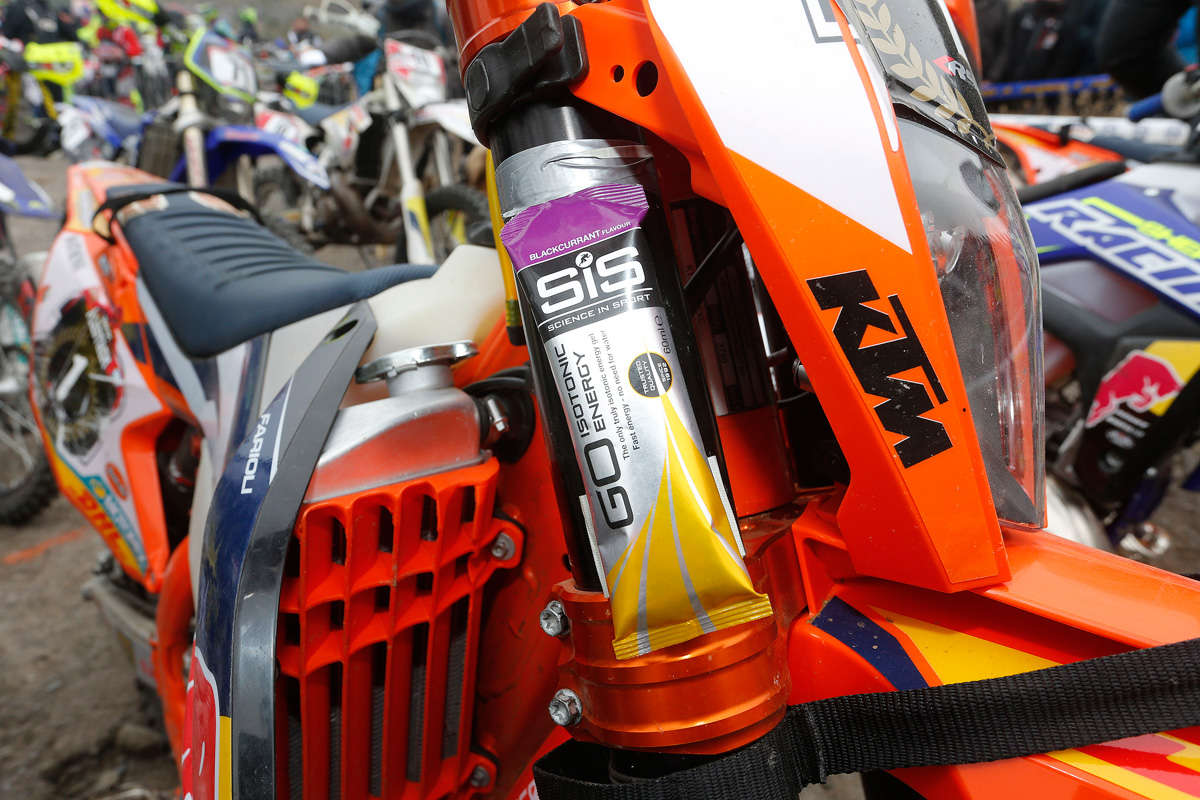
Jonny Walker tapes an energy sachet to his fork leg. With the tape across the top of it, the sachet opens once he tears it away from the leg. Fast, clean, simple.
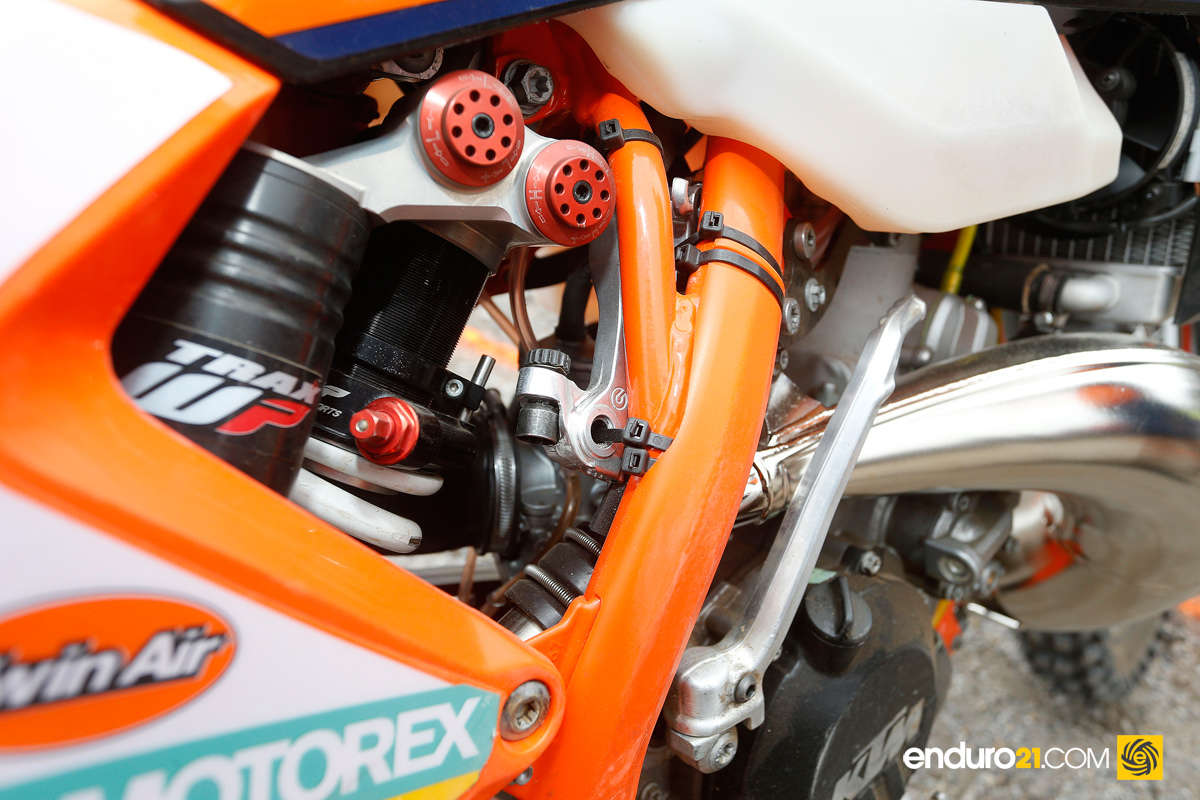
Carrying spares in your bum bag or back pack takes up space increasing bulk and adds additional weight to your shoulders and back, tiring you out quicker. The pros avoid this by mounting spare parts on their bike.
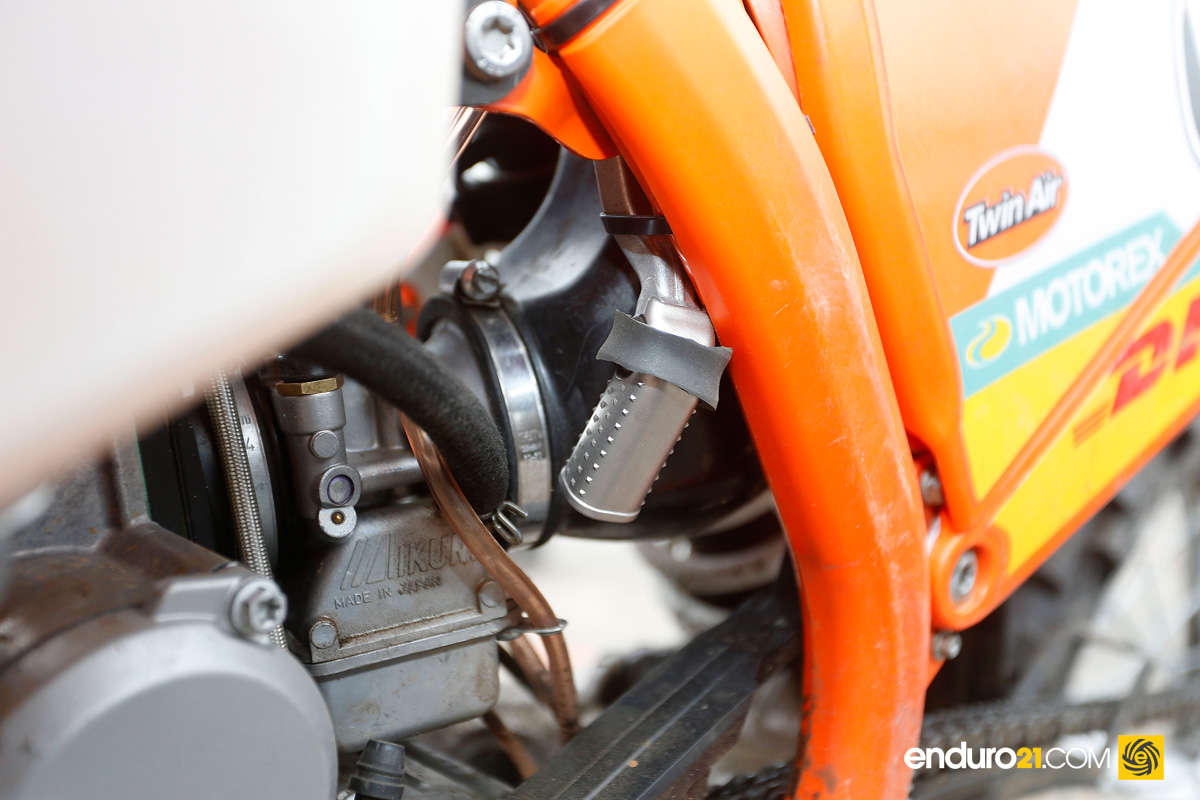
Frame rails are a great place to house spare levers.
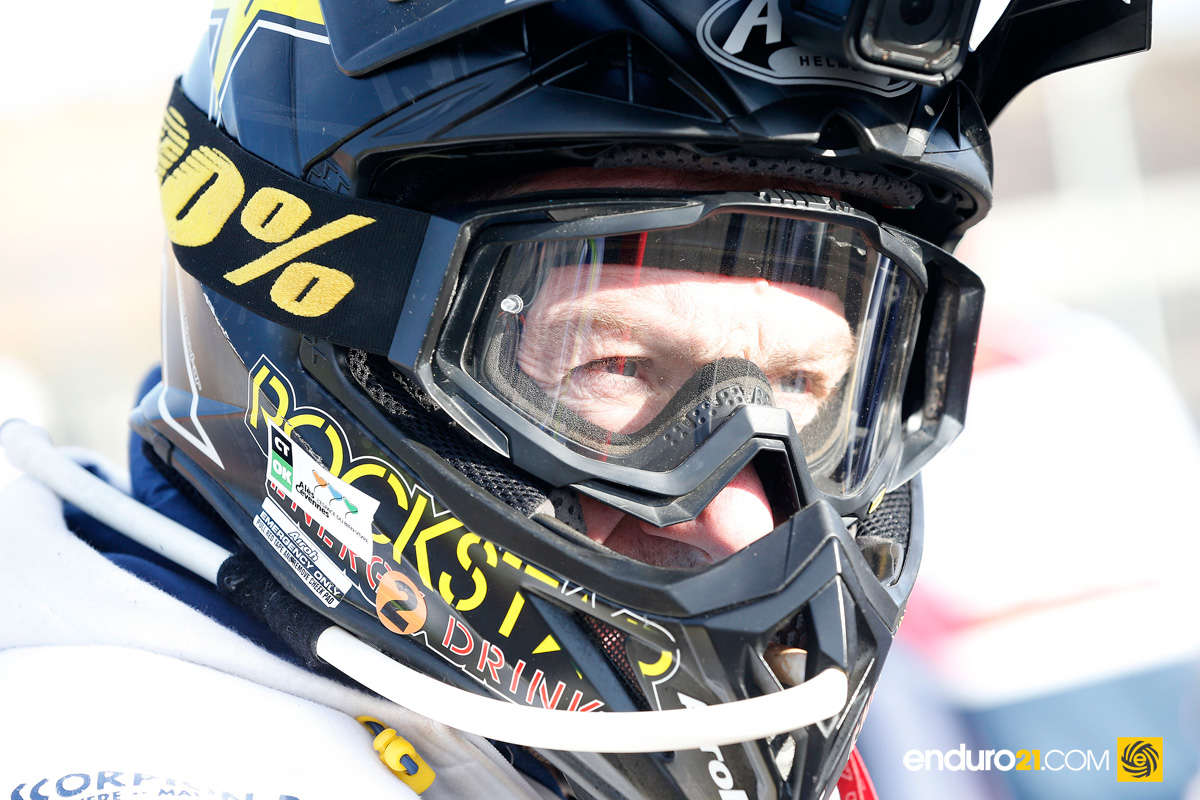
Most pro riders, and hobby guys for that matter, run a handsfree drink system. The tube from the hydration pack is fed through the chin piece of the helmet. Positioned within range of your mouth, you can grab a drink easily without having to lift your hand from the handlebar to find the drink tube. Leatt, USWE and Kriega all do a version.
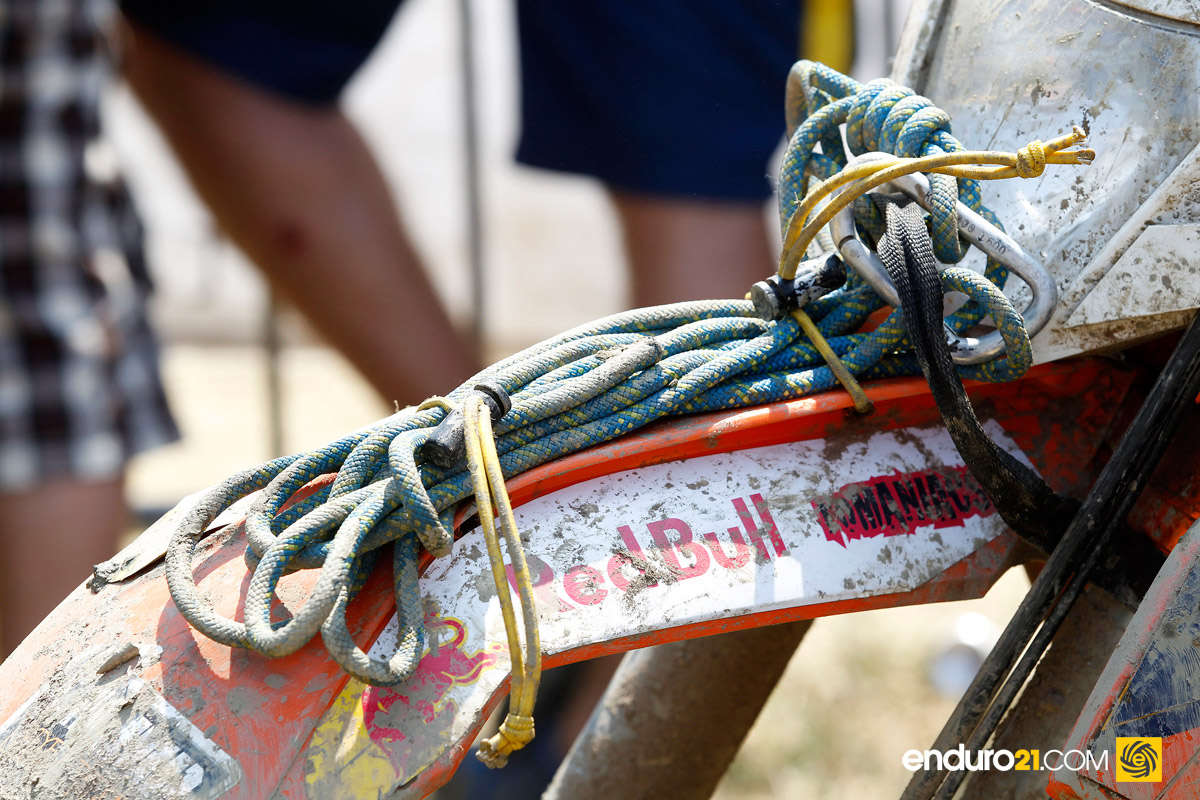
Not seen on many pro bikes but worthy of a mention, having a rope can get you out of many a sticky situation on the trail. Fixed to the front mudguard — comfortably in the V-shaped KTM fender — saves carrying it in a back pack. But the extra weight can make the mudguard more prone to breaking.


